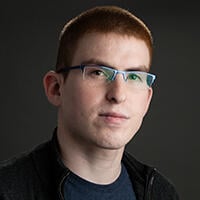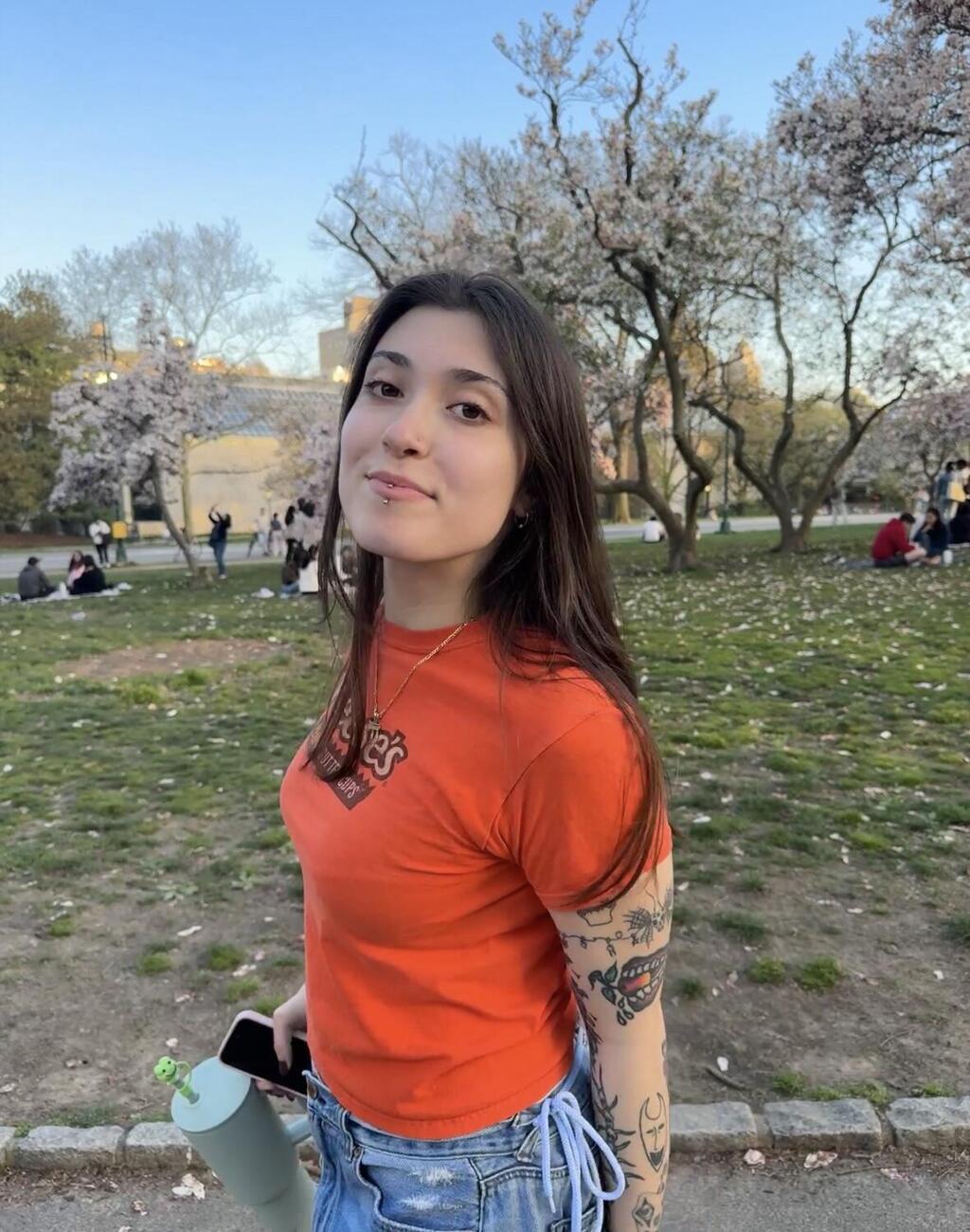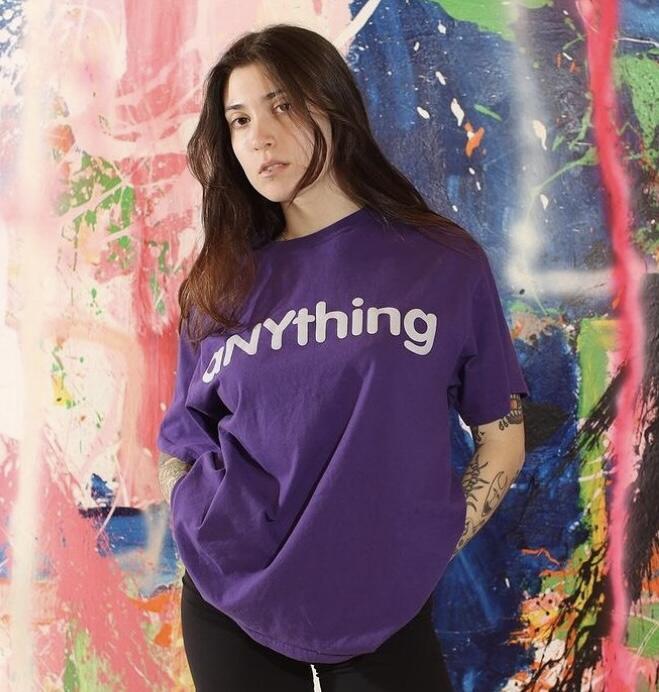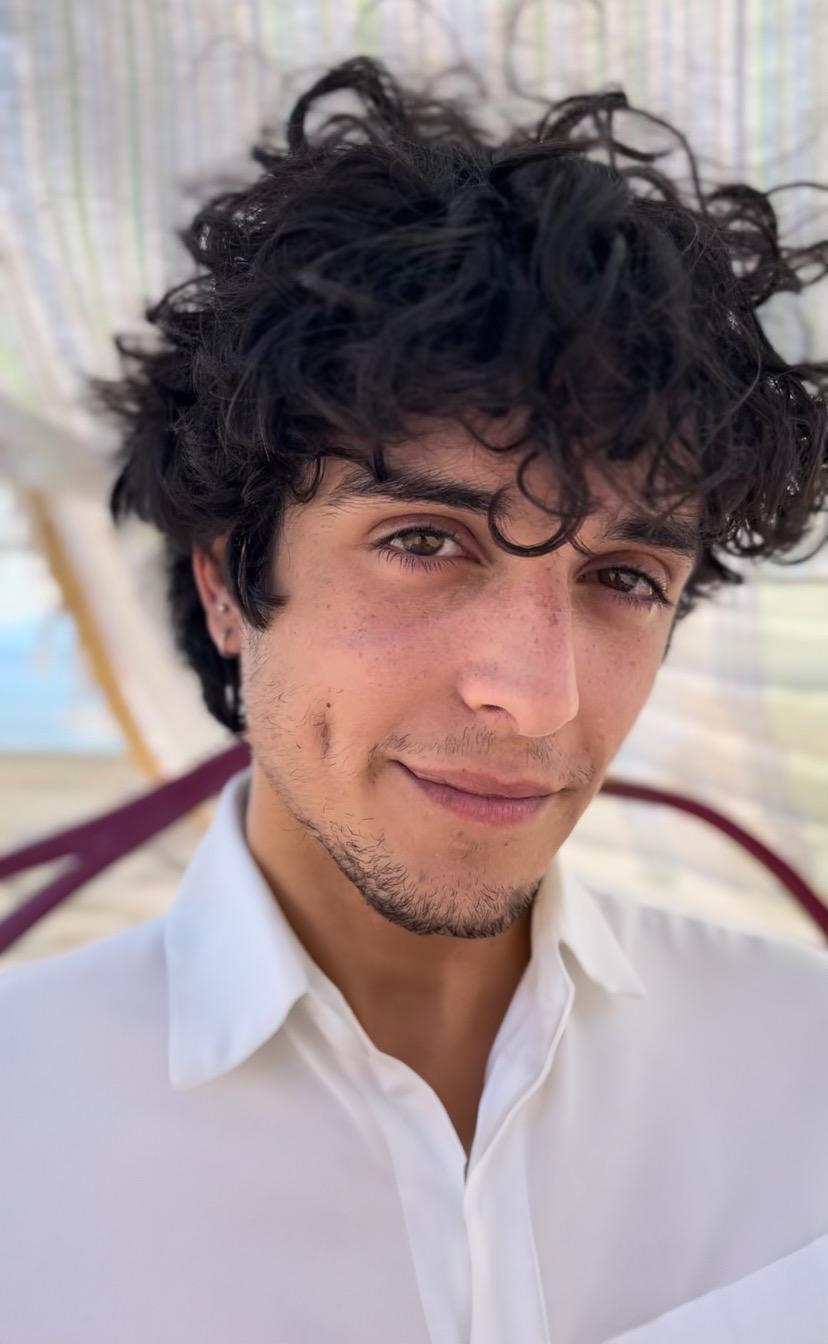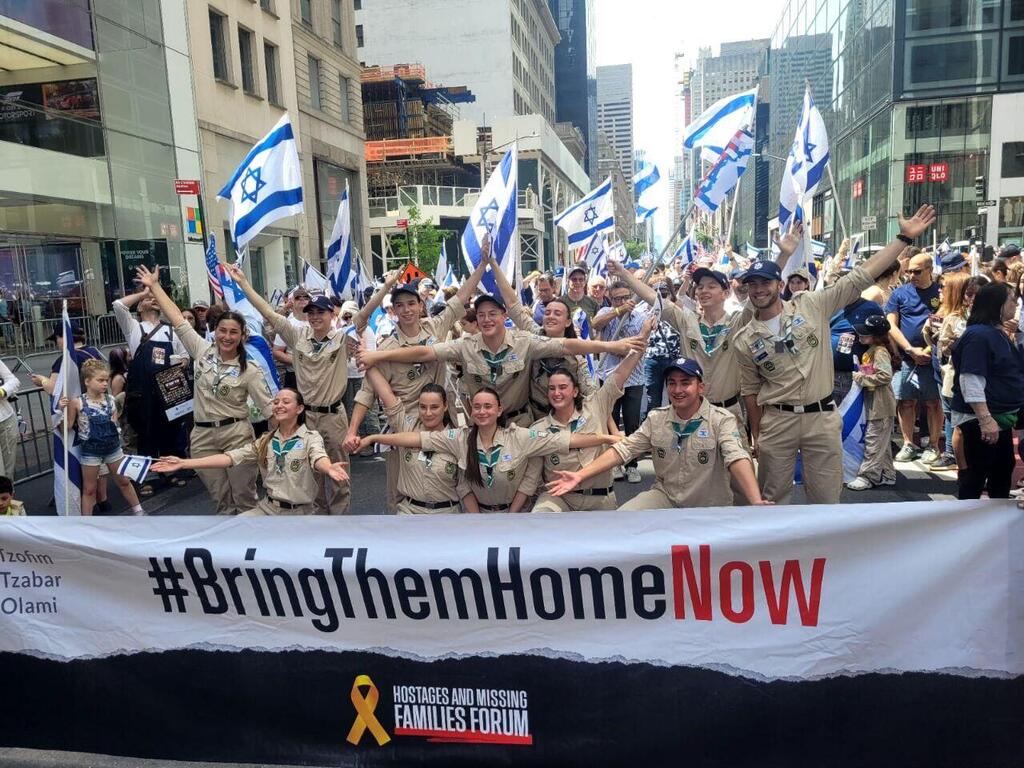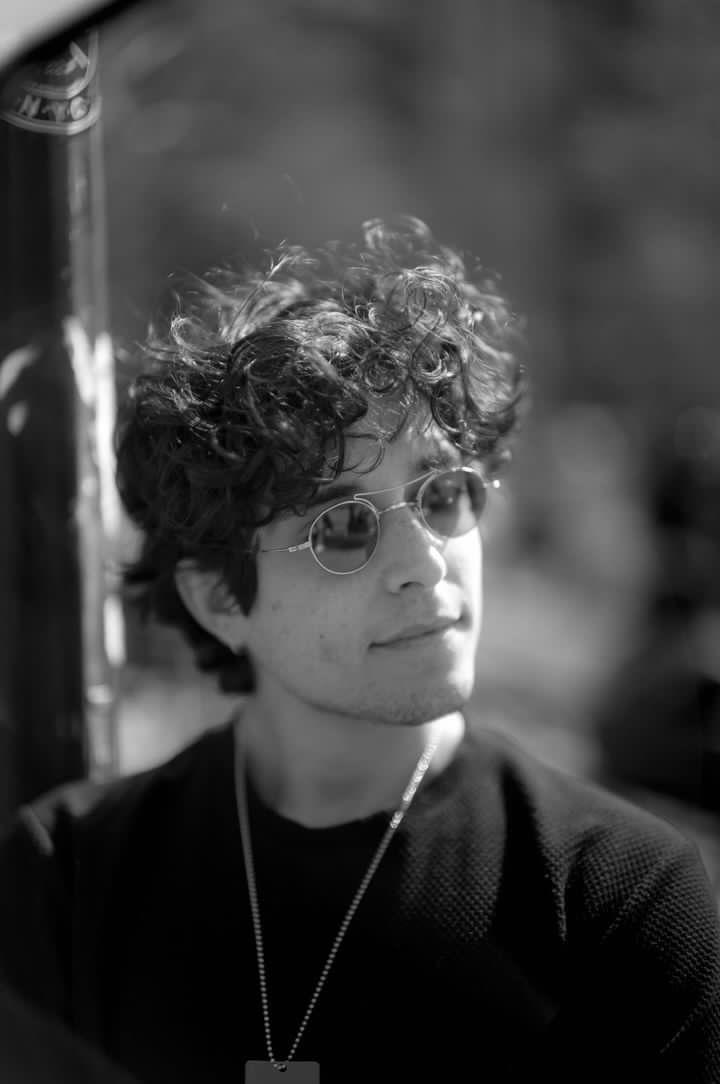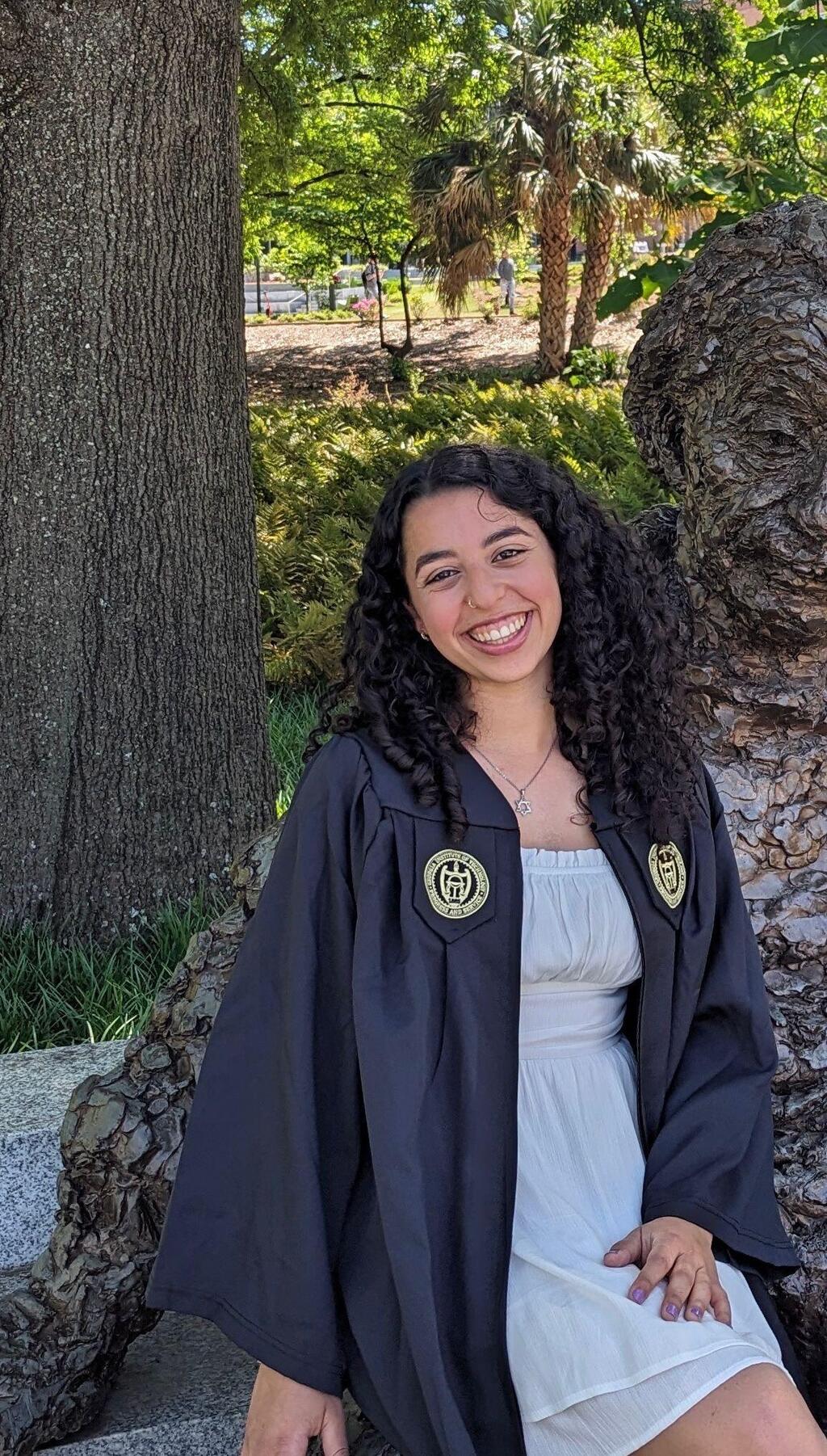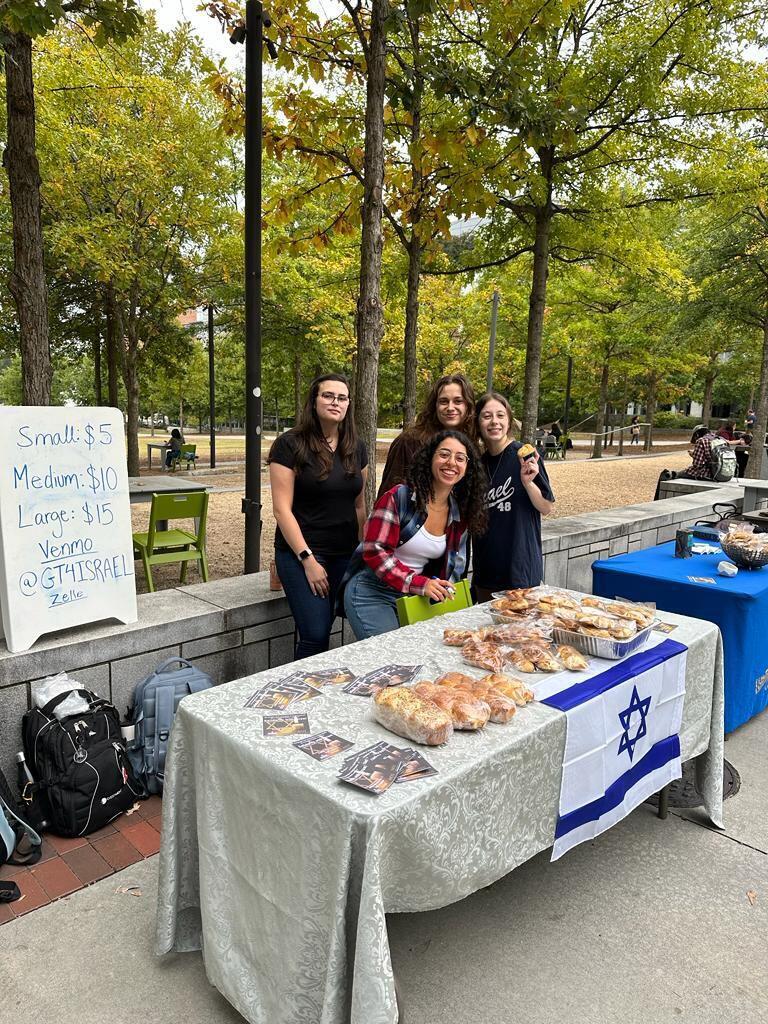Getting your Trinity Audio player ready...
Until October 7, 2023, Renna Ekstein was surrounded by friends from the American left who were, to say the least, not fond of Israel. On that fateful day, during the celebration of Simchat Torah, she realized they were not true friends.
“I open up Instagram and all of my friends are posting about Palestinians dying, and I didn't really understand because Israel's the one being attacked,” she shares.
Renna Ekstein shares about her experiences post-October 7
“My cousins right now are being called up to fight, they're getting into their uniform on holiday, on Shabbat, and they're very religious. They're being called up and they're going to the army and you're talking about Palestinians?
“All my friends were trying to call me and I told them I can't pick up, there's a war going on in Israel right now. And they didn't care at all. They said, ‘yeah, we saw, it's amazing’ and it clicked in my head. Something went off and my whole entire thing changed. I can't believe that I was ever friends with these people. At the end of the day, they don't care about Jewish life at all.
The events of October 7 left Ekstein in utter shock, setting off a chain reaction that led her to decide to make Aliyah this summer through Nefesh B'Nefesh and enlist in the IDF through the Garin Tzabar program. She dreams of becoming a combat soldier.
“I know that they're opening up a lot of new units to girls now, like Yahalom. So that's definitely something,” she says.
In her first year, she will live with other lone soldiers at Kibbutz Ramat Yohanan. Later, she plans to move to the Tel Aviv area, not far from her relatives in Petah Tikva.
It's amazing to think how far she was from wanting to be a combat soldier in the IDF just less than a year ago. “After high school, I became friends with a lot of progressives. In Israel, we call them progressive; here we call them the left. Those were my friends after high school and I guess I didn't really understand the whole woke idea. I just was a lefty for a long time," she says.
“There was a long time where my mom didn't want to talk about Israel at home because I was so left, because I was so woke. She didn't want to talk about Israel at home because it made her very upset how I felt about it. And all my friends, they did not like Israel at all. I felt like I couldn't really talk about being Jewish. I never mentioned that I had family in Israel. I'd never spoke about that. I didn't talk about the fact that my parents were Zionists or that they loved Israel. I never spoke about it."
Accused of 'Zionist propaganda'
Ekstein, 22, lived in the Riverdale neighborhood of the Bronx, New York City, and had started studying in an online academic program at Western Governors University, based in Utah. Her family observes Shabbat, so when she saw her mother watching television on the morning of October 7, she knew something unusual was happening and began to follow the news from Israel with concern.
“I posted something on Instagram about how Hamas is a terrorist organization and that nobody deserves to live under a terrorist organization,” she shares. “This guy that I was really good friends with before the war responded ‘can you take this down? It's Zionist propaganda.’ This is how crazy it is that when you post something about Hamas being a terrorist group, they still consider it Zionist propaganda. It’s so backwards and upside down."
She experienced a particularly severe incident at a party she attended at the end of December. "I was having a conversation with someone and someone comes up behind me and says ‘this girl supports the IDF, she loves Israel,’ screaming it to everyone at the party as if people were going to come and attack me. ‘She loves genocide. She supports the IDF, she's supporting Israel,’ and then he turns to me finally and he goes, ‘I hope you die, I hope your family dies and I hope that Israel burns to the ground.’"
Wow.
"This is what he said to me. He used to be my close friend, used to eat dinner at my house with my family. He was my very good friend."
Is he Palestinian or Muslim?
"He's a black American. They make it about race and it's really not. You think all Israelis look like me? That's not true. The representation of Jews in America are mostly Ashkenazim, so they see Jews that look like me. And in America, in the Western world, it's such a race thing. Everything is about race. So if they see that the majority of Jews look like me, then it turns into this whole racial issue. They don't understand what it's like to be in the Middle East. They've never been there. They don't know they're stupid.
“It's definitely ignorance on some part, but it turns into antisemitism. And when you have a combination of antisemitism with ignorance, it's even more dangerous. It's only when it comes to Jews and Israel and Palestine that they care so much.”
It's really hard to lose all your friends in one day.
“It was hard, but at the same time something so strong. If I couldn't talk about being Jewish and having family in Israel, these people were never really my friends. It wasn't a real friendship. It was very hard for me not to speak to them. But for the most part, if you don't care if my family is living or dying, and you're wishing death upon me and my family, I don't want you in my life.”
Her parents were supportive of her decision to make Aliyah on her own in August. “Ever since I was little, my family wanted to make Aliyah. My parents are very Zionist, but it just didn't happen. And now I think that, as the oldest, now that I'm going, it'll be easier for my parents to go,” she says.
“And as soon as the war hit, I was like, ‘It's now or never.’ My dad is so supportive. He rides around New York with an Israeli flag. His parents are Holocaust survivors. He said this is exactly what his parents always spoke about. It started on the college campuses with all the encampments that are going on, not letting Jews into certain classes. This is exactly how it started in Nazi Germany."
Ekstein believes that the greatest danger to American Jews comes from the left, which she has fled. “There's antisemitism on both the left and the right. It's more obvious on the right and when it's more obvious, it's easier to avoid. But on the left, it's less obvious, it's more hidden and that's what's going to kill you. “
'I can't ignore my people'
Earlier this month, Renna joined dozens of other young people at a seminar by the Tzofim movement's (Scouts) Garin Tzabar in New York, which focused on Israel, Zionism, Jewish and Israeli culture, the IDF and the kibbutzim where they will be absorbed. The group marched alongside hundreds of other Tzofim participants in the Celebrate Israel Parade, held in the city with tens of thousands of attendees.
Among the Jewish youth planning to make Aliyah and enlist in the IDF with Garin Tzabar is Evyatar Gershon, a 24-year-old who has started working in film production. Last year, he graduated from New York University (NYU) with a degree in film and television. His parents are Israelis who moved to the United States in 1999, and he was born in 2000 in Detroit, Michigan. When he was six, the family moved to Boston, and he now lives in New York, preparing for his move to Israel.
Evyatar is expected to make Aliyah in early August and enlist in November. He wants to become a combat soldier and is aiming to join the paratroopers. He has three younger siblings, and his parents are considering returning to Israel, but it’s unclear if they will join him because of their jobs and commitments in the U.S.
"There has always been some conflict in my heart and mind, something in my soul that just split me in two. I essentially have roots in two different places," he explains. "After high school, I considered moving to Israel and enlisting, but I was drawn to what was happening here in the United States, to a life of individualism with the opportunity to focus on studies and art."
The war made him see things differently. "In the first week after October 7, I went to a bar in my neighborhood that I used to visit all the time. I went there with all the guys for a friend's birthday, and suddenly, I saw the bar covered in Palestinian flags. I didn't know any Palestinians there; the bartender was from Ireland," he recalls.
"These are people who don't really understand what's happening in the Middle East, so I didn't expect them to take sides so quickly. At NYU's Tisch School of the Arts, I met many American leftists. Many of my friends and the artists I work with are liberal, and on this issue of Israel, many of my former friends took sides and adopted a very distorted narrative.
"I managed to keep some of them as friends and explain my side, the side I have lived with all my life. I have felt antisemitism and anti-Zionism before, here and there. There were even pro-Palestinian protests during my first year at university in 2019, but now it's become so pervasive. It’s no longer comfortable for me to be in New York. I’m in a community where I don't feel accepted. Before every interaction with people, I have to think about whether they’re 'on my side.' It's strange because those who aren’t on my side, deep down I feel they actually are – but they just don't understand what's happening."
"In January, I got a job in Budapest, working on a Netflix series," he recalls. "I was there for a month and had amazing experiences. It was a very professional production company. I got to know the director and the cinematographer a bit, which are the roles I'm most interested in, and I managed to envision myself where I want to be – as a director, as an artist. At that moment, I thought about the stories that are important for me to tell. I realized that the things that matter to me are so far from what I’ve experienced in this world so far – that I need to just go and be who I need to be. Only then will I be able to tell the stories that are important to me."
What are the things that matter to you?
"Things about identity, Judaism, Israeliness, family and culture, and also about the experience of not quite fitting in. I am a bit split: I am American because I was born here, and I am also Israeli because I was born to Israeli parents."
People might wonder – you're in one of the key centers of the film and television industry, so what are you looking for in a small country in the Middle East?
"Yes. One of my relatives, who had traumas from the army, thought I was an amazing artist and that it would really disrupt my career. My maternal grandfather told me all my life: Go, succeed, work on yourself – and only when you’re rich or successful, move to Israel and contribute. I just feel that's not the way for me. I can't just think about myself and ignore my people. I feel I need to give as much as I can."
Were there people around you who expressed empathy after October 7?
"My parents received dozens of concerned messages, and I received very few. Between three to five people wrote to me, and since then, two of them are no longer on Israel's side. Someone must have told them a distorted version of history. It seems to me that we – the State of Israel and the Jewish people – have failed in communication, in explaining our position. Young people my age, who grew up on 'white guilt' and think everything is about privilege and oppression, just don’t understand the situation. Even Christians who are somewhat religious and have read the Bible – many of them don't understand complex things that don't fit into their framework of understanding the world. Somehow, the media has managed to distort the picture for them. I'm sure this will pass and that it can be corrected."
In a year, his fiancée Kay will join him after completing her academic commitments. She is not Jewish at present. "She really wants to convert, but it's a process. We might get married outside of Israel." They plan to live in Haifa.
Around his neck, he wears a dog tag dedicated to the hostages. "At first, I wore it inside my shirt, but after visiting Israel in April, I decided to wear it openly," he says. "After the war broke out, I felt a lot of hatred on the street, and there was even fear of wearing a Star of David. The visit to Israel strengthened me, and since then, I've worn it outside my shirt. It seems that many people don't even recognize what it is, so I don't worry."
'Some wanted to understand our side'
Maya Kahn, a 22-year-old from Atlanta, Georgia, will also make Aliyah and enlist through the Tzofim Garin Tzabar program. Just a few weeks ago, she completed her bachelor's degree in chemistry and biology at Georgia Tech. She is set to make Aliyah at the end of the month and is considering an academic track in the IDF.
Her mother is Israeli and moved to the United States in her 20s, where she met Kahn's father and started a family in Atlanta. Her father's parents moved to Israel about a decade ago. Like Evyatar, she speaks Hebrew at home, so her transition should be smoother.
"My parents always talked about the possibility of making Aliyah, but my younger brother (20) is very much against it. Right now, they’re not considering it, but maybe in the future, they will join," she says.
She had thought about making Aliyah even before the war. "It was in my plans, but what happened strengthened my decision. After finishing high school, I considered making Aliyah and enlisting, but it was during the COVID-19 pandemic, and at that time, I didn't have the courage to do it. In my final year at university, I decided to go through with it and enlist – and then October 7 happened, and I felt more confident in my decision."
Did you feel hostility on campus?
"At my campus, most students didn't really care about these issues; it’s an engineering and computer science university. However, there is a Muslim student organization and a leftist student organization, and they held protests on campus. This made Jewish students feel very uncomfortable.
"Every year, the Jewish organizations at the university organize a party with the students to celebrate Israel’s Independence Day, and we did it this year too. They protested against our event with signs reading ‘From the river to the sea,’ ‘Free Palestine,’ ‘Genocide.’ There was an incident where someone removed a student’s mezuzah in the dorms. At the leftist student protests, they yelled at us, ‘Shut up, Zionists.’ But the situation is much worse at other universities."
This past year, she served as a student president at Chabad, acting as a liaison responsible for organizing events for students on behalf of Chabad on campus and maintaining connections with Jewish students.
9 View gallery
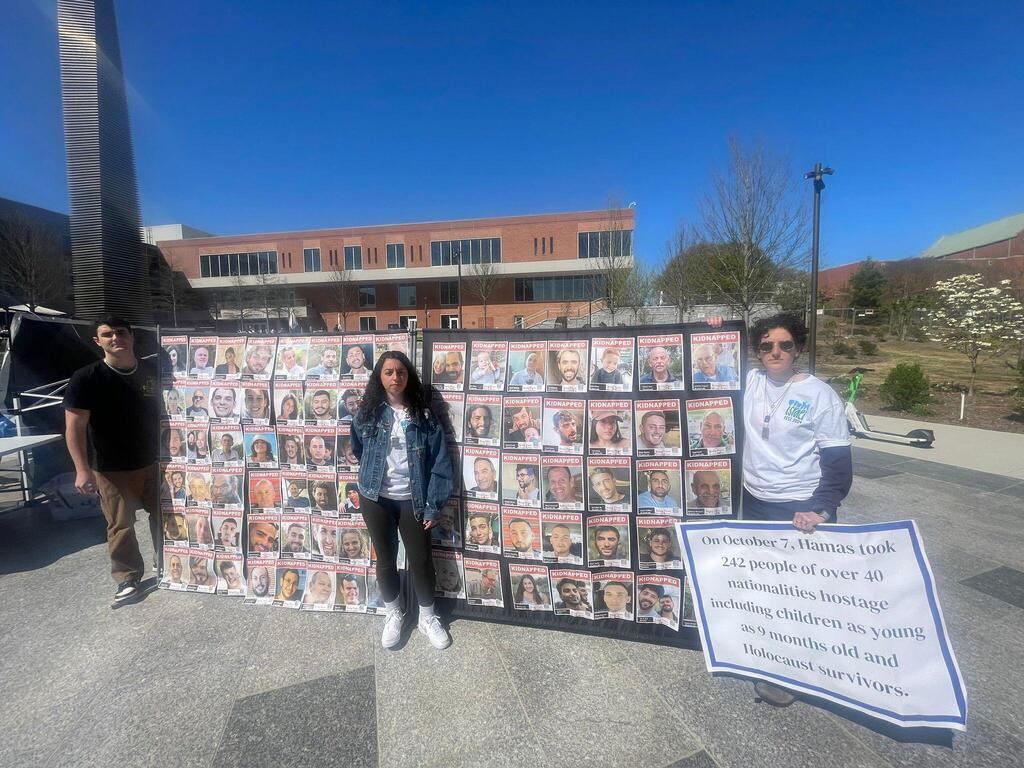

Kahn and her friends in front of a banner calling for the return of the hostages
(Photo: Ethan Povlot)
"People knew me as a Jewish leader on campus. I met leaders from the Muslim organization, and they called me and my friend ‘genocide supporters.’ At first, it’s a bit scary, but you get used to it. My most important goal was to support Jewish students," she concludes. "I also worked with Hillel, the Jewish student organization from a more secular perspective."
What did your campus activities focus on?
"A few days after October 7, we organized a ceremony to support Israel and commemorate the memory of the victims. I decided that several days a week we would set up a table, sell challah and raise money for United Hatzalah in Israel. The booth was also a place for Jewish students to show that we are here and they have support. We also had a tefillin station, charity and Shema readings – to help people connect with their Jewish identity and not hide it."
Was there a thought that it might be better to lay low and hide Jewish symbols?
"Yes, it was natural for me to be afraid, but it’s really important that we stay strong. All of this happened while we were supposed to be students, studying and taking exams. It was hard to balance the tasks, but for me, it was very important."
Were you able to sway people in favor of Israel sometimes?
"Actually, yes. Many students didn’t understand what was happening, so I talked to them and tried to convince them, to show a true picture of what is happening in Israel. There were many who came with their opinions to try to persuade me, and they were not pleasant, but there were also those who wanted to understand our side."
The experiences she had only strengthened her decision to leave everything behind and become Israeli. "The university experience sharpened my feeling that I am part of a different people, more Jewish than American. I felt that I wanted to live a life that contributes more to the Jewish people, to serve in the army, to start a family, and to work in Israel," she explains. "I am becoming more religious and today I am closer to religion than my parents. This also strengthens my decision because it is much easier to be a Jew connected to religion in Israel."



